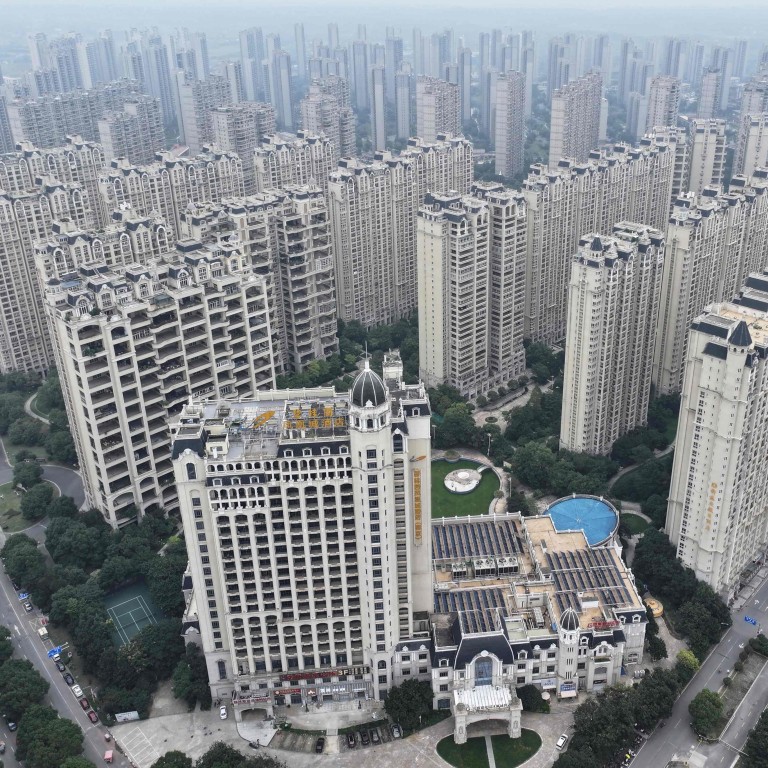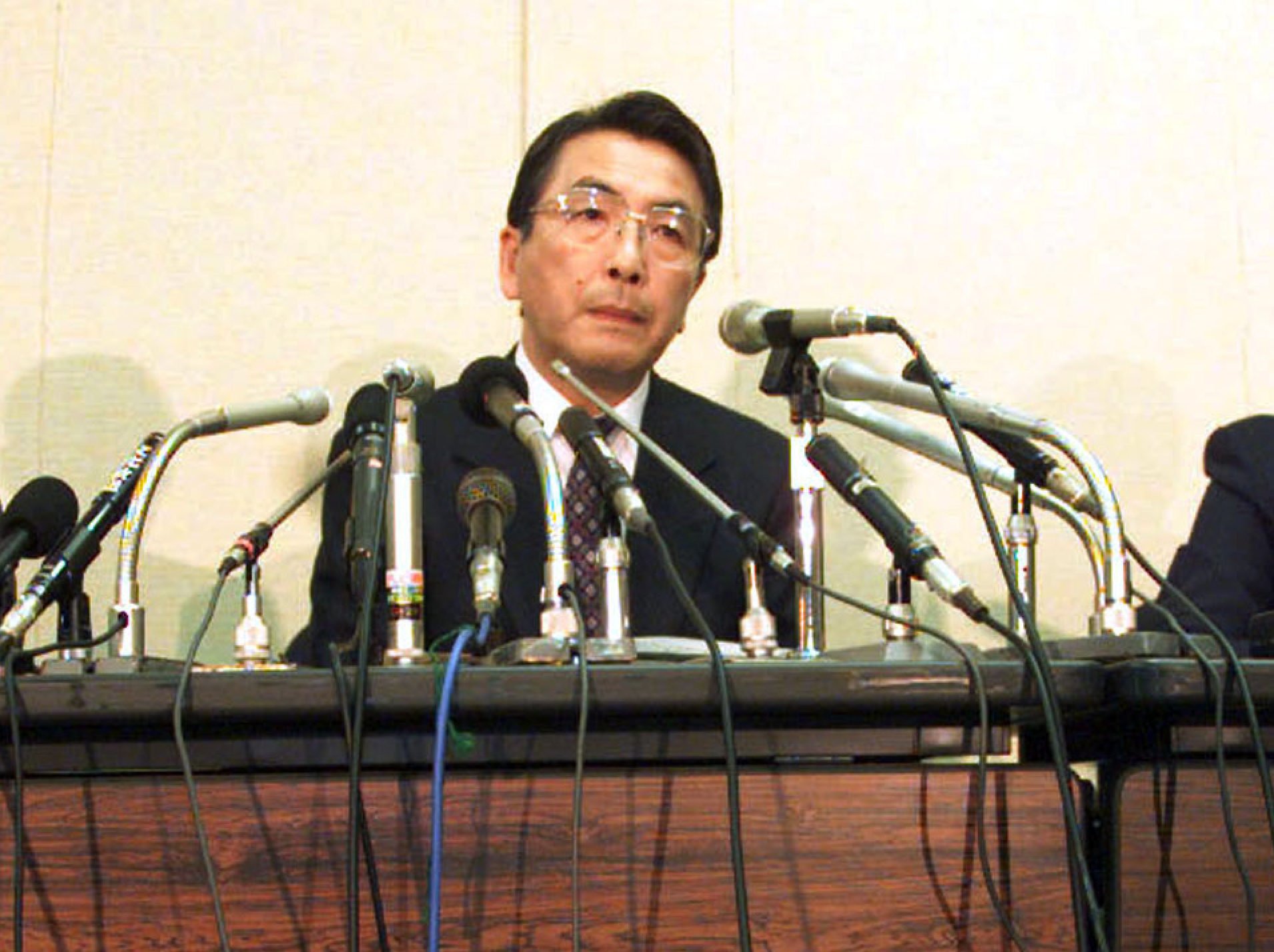
After Chinese President Xi Jinping’s amiable meeting with his US counterpart Joe Biden, he should have more space to focus on the economy. Many see risks for the world’s second-largest economy, which has entered a slowdown with the bursting of its property bubble.
The fear is that China may slide into “Japanisation” – the phenomenon named for Japan’s lost decades after the economy tumbled in the late 1990s due to non-performing loan problems.
But China presents a different story, one that is worth examining in greater detail.
Since around 2017, China has moved to curb its frothy property market, regulating prices to prevent excessive fund inflows even as the supervision of banks tightened. In line with this policy direction, average home prices have generally trended lower, particularly since August 2021.
The roots of the bloated property sector can be traced back to the global financial crisis. In 2008, China introduced a 4 trillion yuan (US$586 billion) stimulus package. Coming after three decades of economic growth that lifted 800 million people from poverty, this injection helped to transform China’s landscape, adding high-speed railways, highways and airports. China’s per capita income took off and, by 2010, it had the world’s second-largest gross domestic product.
But the construction boom also created a massive property sector, estimated to now account for as much as 23 per cent of China’s GDP. This boom has since peaked and offers diminishing returns, especially in small and medium-sized cities. The result: China has the capital stock of a developed economy – its housing space per person, for instance, is 430 square feet, as much as in Germany or Japan – but not the income.
Unfortunately, while investment has decreased and the construction boom has eased, ghost cities have also sprung up. China cannot change things dramatically any time soon because of the long construction lifespan. The problem is more severe outside the top cities; property prices have fallen faster in the tier 3 and lower cities, which house over 70 per cent of the population. Tier 3 cities alone account for roughly 60 per cent of China’s GDP.
China Evergrande Group and Country Garden, two troubled major developers, have been seized on as examples to suggest the coming collapse of China’s economy. Their troubles stem simply from overly optimistic plans, mainly in the tier 3 cities, but their heft has attracted increasingly gloomy forecasts, further cooling consumer and business confidence. Yet Country Garden, for instance, has continued to deliver finished housing units to its customers.
Japan also had a property bubble, in the late 1980s, but that stemmed from banks’ profligate attitude towards loans and the enthusiastic stock and property investments of Japanese people and corporations. Japan took measures similar to China’s and land prices fell for 16 consecutive years to 2007, down to about a third of their peak.
During the property price decline, Japan attempted to lift the economy from its severe downturn by channelling vast funds towards infrastructure investment and cutting interest rates. The consumer tax was raised to 5 per cent in 1997 from 3 per cent and pension insurance premiums also increased.
Meanwhile, international pressure piled on Japan to tighten its standards for the disposal of bad loans amid changes to the accounting rules for banks to wipe out non-performing loans. Banks were forced into prolonged balance sheet adjustments. It punched the Japanese economy on the nose.
With both new and international accounting rules demanding the disclosure of more accurate non-performing loan figures in Japan, a Goldman Sachs report in 2001 estimated that Japan’s non-performing loans had reached 237 trillion yen (US$1.9 trillion). This was nearly 38 per cent of all bank loans at the time, and about five times the official figure published by banks.
In reality, the total value of non-performing loans in the 15 years after Japan’s property bubble burst was only 110 trillion yen, less than half the estimate.

In 1998, as the property crisis evolved into a debt and banking crisis, Japan took the unprecedented step of nationalising banks in trouble.
Shigeoki Togo, then CEO of Nippon Credit Bank, which was nationalised and later renamed Aozora Bank, continues to criticise the takeover, insisting he was confident of the bank’s recovery and that it was the change in accounting rules that forced his bank into bankruptcy.
The bursting of China’s property bubble has been followed by an easing of monetary policy, lending rate cuts and property stimulus measures. The idea is to make sure every homebuyer ends up with a property.
Japan’s example suggests that one way to proceed is to find other industries with higher investment yields to achieve an intensive, short-term economic revitalisation.
Fortunately, China has globally competitive tech-driven industries, such as in batteries and electric vehicles and will be able to boost exports even amid a semiconductor battle with the US. Also, China’s well-balanced savings and investment rates, each at over 40 per cent of GDP, are far better than in many other countries.
Property woes could lower this investment ratio to 35 per cent, a gap of roughly US$1 trillion given China’s GDP of US$18 trillion. But as long as China makes up the difference through its current account surplus, its economy will stay in equilibrium.
And that may be enough to calm international jitters over the Chinese economy. China does not have to change its accounting rules over non-performing loans.
Yoshihiro Sakai is adviser to the Office of the President at the University of Tokyo. He is a former market operation officer at the Bank of Japan and a senior economist
News Related-
AI chip boom fuels MediaTek’s 40% rally, beating Qualcomm and peers
-
Singtel is next S’pore stock to be traded on Thailand bourse under depository receipt linkage scheme
-
Chinese Swimming Club renews lease of Amber Road site for another 30 years
-
Cyber Monday forecast boosted after record online holiday sales
-
WealthBT Podcast: Powering up philanthropy for climate goals
-
US stocks pull back after weeks of gains
-
Former Binance CEO Zhao Changpeng must stay in US for now, judge says
-
Sports Illustrated scrubs AI-generated content after being called out for using deep fakes
-
Climate finance: UK-based standard setter VCMI’s introduction of flexibility to carbon credits market could unleash demand, much-needed investment
-
Fast-fashion giant Shein could be next blockbuster IPO after filing to go public: report
-
New York's cannabis board votes to settle lawsuits that have stalled legal dispensaries
-
CK Hutchison-backed HutchMed eyes global expansion after FDA approval for novel cancer drug
-
Cyber Monday sales set to reach $12.4 billion thanks to deal-hunters
-
Texas' new power grid problem
